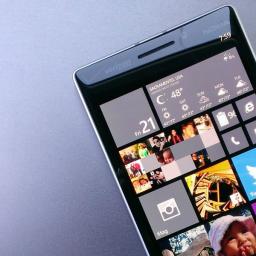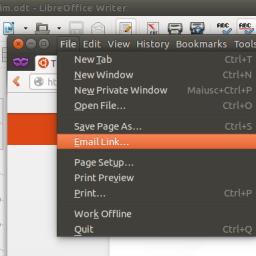
Nokia's latest offering for Windows Phone 8, the Lumia Icon is out for review, and though early reviewers approve of the hardware's build quality, battery life and high-resoution screen and camera, many cite concerns about the OS and its app ecosystem and conclude the phone fails to compel.
Sporting a 2.22Ghz quad-core Snapdragon 800 processor, 2GB of RAM, 32GB internal storage (but no SD slot), a 20 megapixel rear-facing camera, a 1.2 megapixel front-facing camera, and a 5" 440ppi, HD-capable 1920x1080 resolution screen, the phone is no slouch. But reviews by
Wired ,
Digital Trends ,
Gizmodo ,
The Verge , and
IGN all use conflicting language like "best Windows phone ever made" and "pretty but flawed," "fantastic," and "bland," or "beautiful" and "unrefined." What's going on here? Is this a winner for the struggling Windows Phone brand, or does it fall short of the mark?
Lastly, rumours are circulating that
Microsoft is considering Android compatibility. Is this going to be the secret sauce, or will it undermine WinPhones the way
Windows compatability led to poor sales of IBM's OS/2?
In these paranoid post-NSA times, you'd be forgiven for worrying about the security of your communications. Are your private conversations on Twitter, Facebook or Skype really private, or are they being stored on some shadowy organisations' servers in perpituity? Is something you thought was said in confidence going to come back to haunt you at some unknown time in the future? A lot of developers are asking themselves these kinds of questions, and we're starting to see the emergence of decentralized messaging systems. Here are a couple of these projects which look promising. Although still under active development, they both have clients available which are usable
right now by adventurous alpha testers:
- Project Tox is a FOSS (Free and Open Source Software) instant messaging application aimed to replace Skype. It aims to be an easy to use, all-in-one communication platform (including audio, and videochats in the future) that ensures their users full privacy and secure message delivery. Outlines of the DHT and Lossless UDP protocols used, and a recent post on reddit has more information, and details of different client apps available.
- twister is built on Bitcoin and BitTorrent protocols to deliver a peer-to-peer microblogging system, a secure decentralized alternative to Twitter. The download page has links to source code and Win32 binaries and an installable Android package is available for users who have 'Unknown sources' enabled.
- And while it's not a messing system per se , I2P may also be of interest as an 'anonymous overlay network' which also provides access to secure blogging and email among other features and is available on many platforms .
One thing to bear in mind -- communication software is only as useful as the people using it, so if you want to talk to your friends with either of these, now's the time to start convincing them to adopt...
 Ars Technica
Ars Technica reports that the next version of Ubuntu (14.04, or
Trusty Tahr ; a Long Term Support Release) will allow users an option to display menu bars inside their parent application windows -- a move away from Mac OSX interface conventions towards the menu placement more commonly used in Windows.
"Despite displaying the menu contents outside of the window, the menus are still window-specific," we noted in a review of Ubuntu 12.04 in May 2012. "By design, the global menu bar displays the menu of the focused window. This proves awkward in some applications with dialogs and multiple windows."
The intended result is to "fix the main UX bug we have [had] in Unity since its very first release: the menus being
hard to find or too far from their parent window ", according to a blog post
Canonical employee Marco Trevisan . "The amount of technical work needed [is] not to be underestimated [...] one of the blockers we had in 12.04 was our dependency on the legacy compiz decor plugin + gtk-window-decorator, that has worked 'OK' in the last years but -- apart from using deprecated technologies (gtk2 in primis) -- it really would have made this concept impossible to realize."
A
tahr appears to be some species of mountain goat indigenous to the Himalayas.
 Nokia's latest offering for Windows Phone 8, the Lumia Icon is out for review, and though early reviewers approve of the hardware's build quality, battery life and high-resoution screen and camera, many cite concerns about the OS and its app ecosystem and conclude the phone fails to compel.
Nokia's latest offering for Windows Phone 8, the Lumia Icon is out for review, and though early reviewers approve of the hardware's build quality, battery life and high-resoution screen and camera, many cite concerns about the OS and its app ecosystem and conclude the phone fails to compel.
